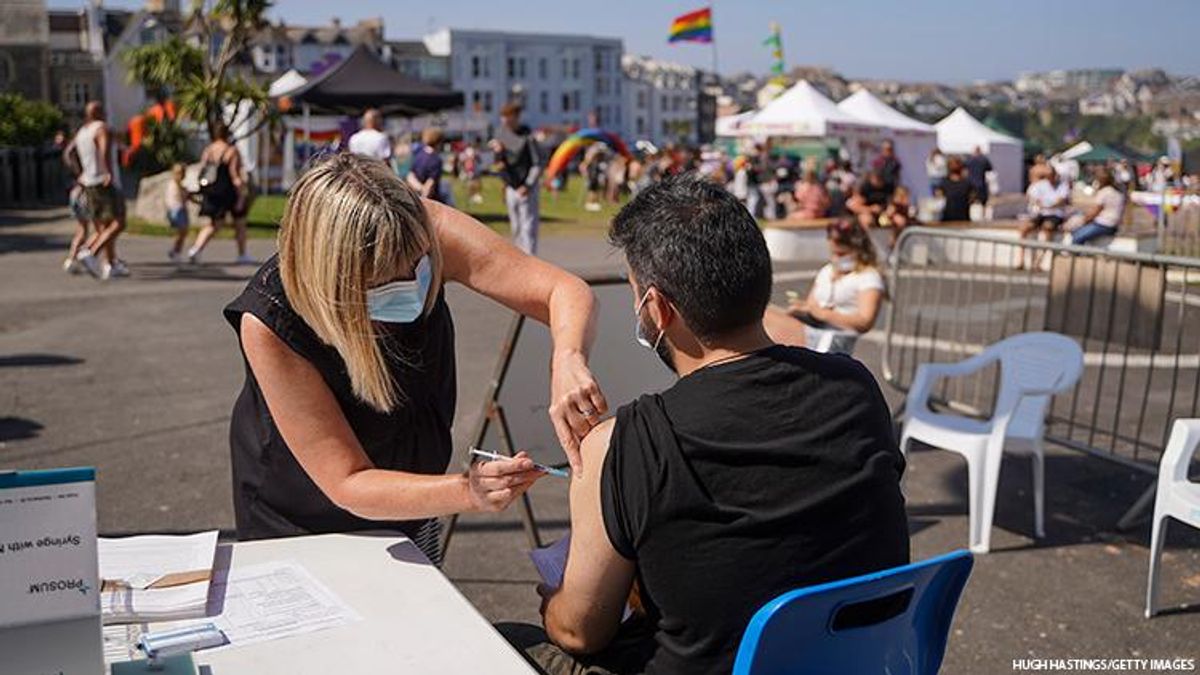On World AIDS Day, President Joe Biden and his administration are celebrating the advances made in fighting the disease and highlighting their efforts for further progress toward ending the epidemic at home and abroad.
Among other things, the State Department has announced a new five-year strategy to guide PEPFAR, the President's Emergency Program for AIDS Relief, a global program that has been in place since 2003.
"We are at a pivotal moment in the global AIDS response," Secretary of State Antony Blinken wrote in a document on the PEPFAR strategy, "Fulfilling America's Promise to End the HIV/AIDS Pandemic by 2030." "We are closer than ever to reaching the United Nations Sustainable Development Goal of ending the global AIDS pandemic as a public health threat by 2030. That goal is within reach thanks in part to nearly 20 years of unwavering bipartisan U.S. leadership and investments across U.S. administrations and from Congress."
So far, the administration said, PEPFAR has saved 25 million lives around the world. Five million babies have been born HIV-free, 20.1 men, women, and children have received lifesaving treatment, and in the past year, 1.5 million people have been gone on HIV prevention drugs. But the work is not done, administration officials noted.
PEPFAR is not on track to meet the goal of bringing new HIV infections down to 370,000 worldwide by 2025, and progress varies greatly from one country to another. "We need a new collective approach to bend the curve on new infections across our partner countries, doubling down on what works in prevention, introducing and scaling new product and service delivery innovations, and taking a multisectoral approach across all parts of our government and community infrastructure to reduce new HIV acquisitions," the "Fulfilling America's Promise" document says. "This also requires ensuring that we work with clients who test positive to be started and sustained on treatment, to achieve viral suppression."
Also, there are inequities among various populations. New infections are still highest among young women, at rates more than double of that among men in their countries and age groups. And laws and policies in certain countries make it hard for certain populations -- men who have sex with men, transgender people, women and girls, and others -- to access HIV prevention and treatment. "Without intentional focus on and dedicated resources for closing equity gaps, including prevention, addressing structural rights and policies, as well as mitigating stigma, discrimination, and violence, the most vulnerable populations will continue to be disproportionately affected," the report says.
There are needs to strengthen health care systems and prevent new outbreaks as well, the document notes. "We are at a crossroads in the global HIV/AIDS response, and the choices we make now will have critical implications for years to come," it says. "If we falter, millions more people will acquire HIV and millions more people now living with HIV will die of AIDS. But if, together, we confront the challenges before us with conviction and compassion, we can pave the path to end the HIV/AIDS pandemic everywhere as a global health threat and to secure a healthier future for everyone."
The Biden-Harris administration already has taken many steps to improve the response to the epidemic both domestically and globally, a White House fact sheet points out. Within the U.S., it launched a national strategy aimed at preventing new infections and improving health outcomes for those already infected with HIV while reducing health inequities and stigma. It has implemented an initiative designed to end the epidemic domestically and requested unprecedented funding to support this effort.
The administration has already raised record funds to fight HIV globally, helped HIV clinics address COVID-19 and mpox as well, fought stigma and discrimination by spreading the "undetectable=untransmittable" message and taking other steps, hosted a conference on HIV criminalization, advanced equitable access to treatment and prevention, promoted research on vaccines and treatments, and involved diverse populations in the efforts to end the epidemic, according to the fact sheet.
"On World AIDS Day, we reflect on all those lost globally and in the U.S. from AIDS-related illnesses, honor the more than 38 million individuals living with HIV, and celebrate the remarkable gains we have made battling this disease," the fact sheet states.














































































